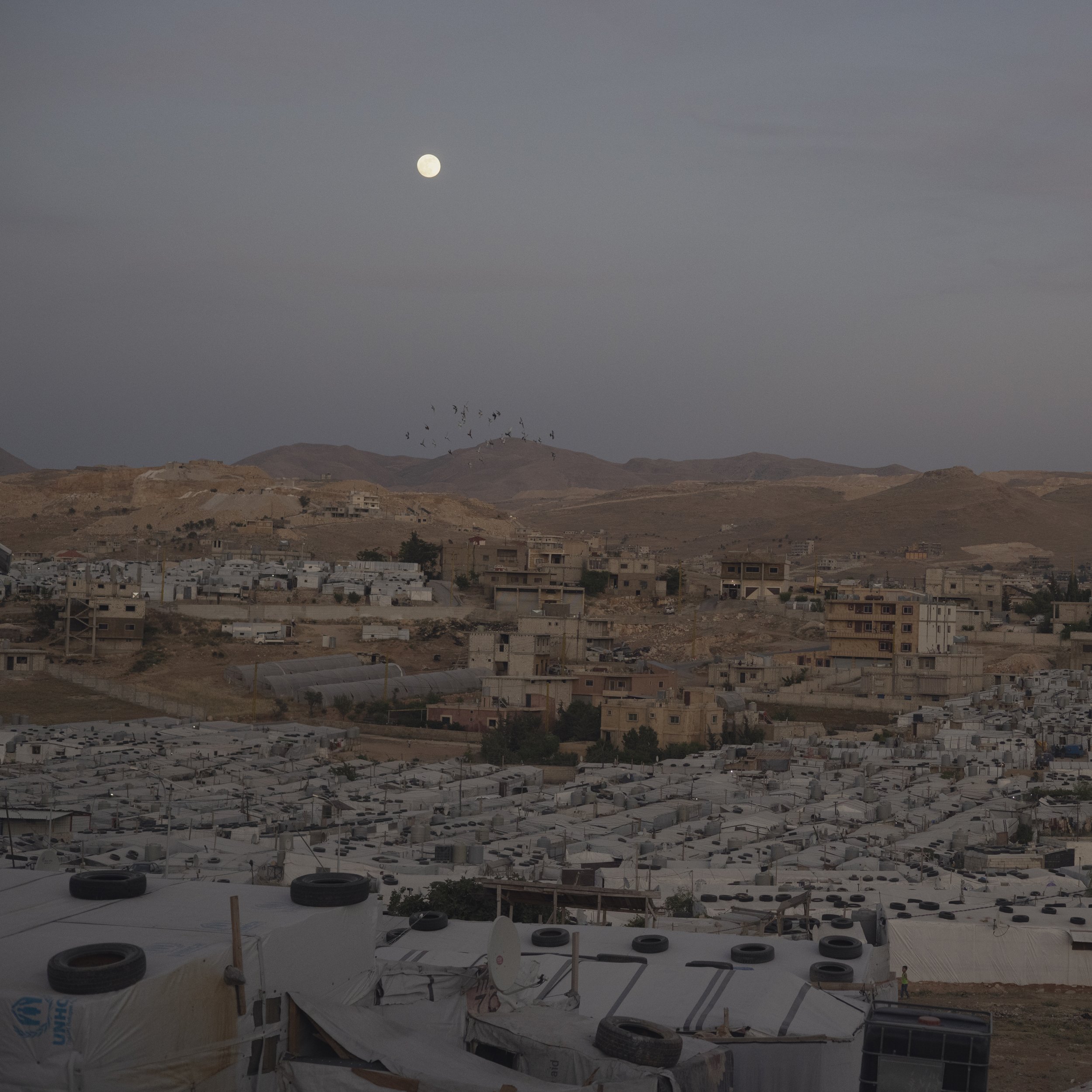The collapsing city
When the war in neighboring Syria started, hell broke out in the city of Arsal in Lebanon. They received tens of thousands of Syrian refugees, ISIS fighters invaded the city and the mayor was threatened received death threats.
The Islamist terrorists were chased out of the city after three years, but shortly afterwards the country's economy collapsed with soaring inflation and many families having difficulties of putting food on the table.
The economic collapse have been called one of the worlds worst since the 1850s by the World Bank. Now everyday life has become a struggle for survival.
A young Syrian refugee drives through one of the many makeshift tent camps in Arsal. The authorities have refused to allow the refugees to settle permanently, which means that they live in tents. During the summer it's scorching hot - and in winter, bone chillingly cold, they say.
Dafer Bertauwi (40) was a soldier for Bashar al-Assad in Syria, but fled when he saw what the military was doing to the people. Now he lives in a small tent with his family.
"I want a different future for my children and me. Anything is better than the situation I am in now", he states.
The influx of refugees is also severely affecting the already weakened infrastructure in the city. Sewage system, water and road were suddenly even more under-dimensioned than before.
While the tents for the refugees were set up, the conflict between the two nationalities increased. "The Syrians are stealing our jobs," many of the Lebanese stats.
Abdullah Mahdam (45) with his family from Syria in their small tent.
When asked why Abdullah left Syria, he looks down. Then he lifts up the shirt. Two deep scars extend from the shoulders down to the end of the ribs.
«They used knives in prison», he states..
Many of the refugees in Lebanon are young kids, and they are seen all over the camp. Some go to school, but with a raging pandemic and challenging home school situation, there are many challenges.
Mohammed Jarieh (22) is Lebanese and a taxi driver in Arsal. The economic crisis has hit him hard.
"There are no jobs here. The people are dying", he says.
He often sits like this, in the car with a cigarette, while he waits for the customers who never comes.
Abandoned cars in the city of Arsal, which is bordering Syria. Across Lebanon, access to gasoline was minimal in 2021, in part because much was smuggled over to war-torn Syria.
"When IS was here I was scared. They controlled everything and we could not move freely", says 50 year old Mohammed Rayed, right, while taking a sip of his coffee.
One of the few sources of income into the mountain village of Arsal is the stone on which it is built.
Large white bricks of stone are cut out of the mountains, cut up, polished and resold. The work is often carried out by Syrians, who are considered cheap labor in the country.
"If there is a bad mood between me and my wife, I will come out here to the pigeons. They give me peace and joy, and they are part of my family", says the Syrian refugee Mohammed Farah (35).
Lebanese Neiman (7) lost his father Khaled when he was killed by the Islamic State (IS) which had invaded the city. Now the family is struggling to survive since they lost the breadwinner in the family.










